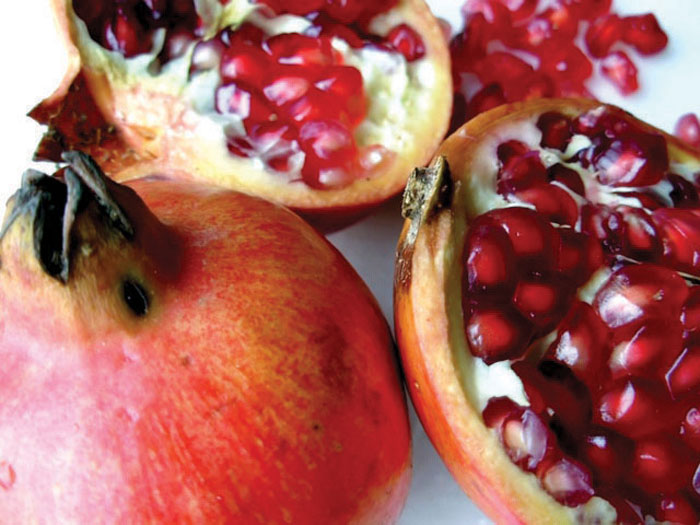Goji berries and pomegranates available at Extension plant sale
Published 12:00 am Sunday, February 24, 2019

- Pomegranate
By Amy-Lynn Albertson
Rowan County Extension director
The Rowan County Cooperative Extension plant sale will be going on until Friday, Feb. 28. This year, the sale has new plants available for purchase, including goji berries. Goji is a sprawling shrub with long, flexible canes and clusters of small, gray-green leaves. The flowers are a brilliant purple and appear in early summer along the length of the canes. They produce juicy, bright red fruits that resemble small peppers. The berries grow sweeter as they mature on the plant, and continue to appear until frost. Goji berries are rarely grown commercially in the United States, and their shelf life is short, so fresh berries can seldom be found at local supermarkets or farmers markets.
The ideal soil pH for growing gojis ranges from 6.5 to 7.5. Plant the shrubs in fertile, well-drained soil. Full sun is best, but gojis will tolerate some shade. Gojis should be watered well during the first year of growth but are quite drought-tolerant after they’re established. Space them 4 to 5 feet apart within a row. Your new shrubs will grow vigorously from the base of the plant. Goji shrubs typically start producing fruit the second year after planting, but you may get a small harvest at the end of your first growing season. Yields will increase after that and will peak after about five years. The plant bears small purple flowers starting in midsummer. The resulting green berries eventually turn a deep orange-red by around August. Berry production continues until the first hard frost. Goji berries are low in calories, and even small amounts pack significant levels of vitamins A and C, protein, and antioxidants. The taste of goji berries is a bit similar to a dried plum tomato. The goji berry plants are in one-gallon containers and cost $10 each.
Another new plant available this year is the pomegranate. The name pomegranate translates to “seeded apple.” This fruit is usually about the size of a large orange. Once the leathery outer skin is removed, hundreds of red “seeds” are revealed. Although people may call these little fruit “seeds,” they are botanically known as arils. An aril is a fleshy, juicy, brightly colored tissue, which covers the actual seed. Pomegranates grow on a shrub-like tree. Although this plant prefers warm, dry regions, it can be produced in some parts of North Carolina. The pomegranate is considered cold-hardy from zones 8 to 10, so plants grown in our area may need to be protected in the winter. The plant usually survives the winter but will be killed to the ground at temperatures below 10 degrees. In addition to being a delicious, nutritious snack, pomegranates can be used in holiday wreaths and centerpieces. This plant will not fruit reliably in our area so it should be treated as a novelty. It still has excellent ornamental value, and the fruit is a bonus. The pomegranates are in one-gallon container and cost $10 each.
This year, the sale also offers a select group of fruit trees. Apple, peach, pear, and plum trees are available in five-gallon containers for $25 each. The varieties selected were chosen as solid performers in our area. The profits from this year’s plant sale will go to support various Extension programs in agriculture, food and youth development for Rowan County. For more information, go to http://go.ncsu.edu/2019springplantsale or call the Extension office at 704-216-8970.


